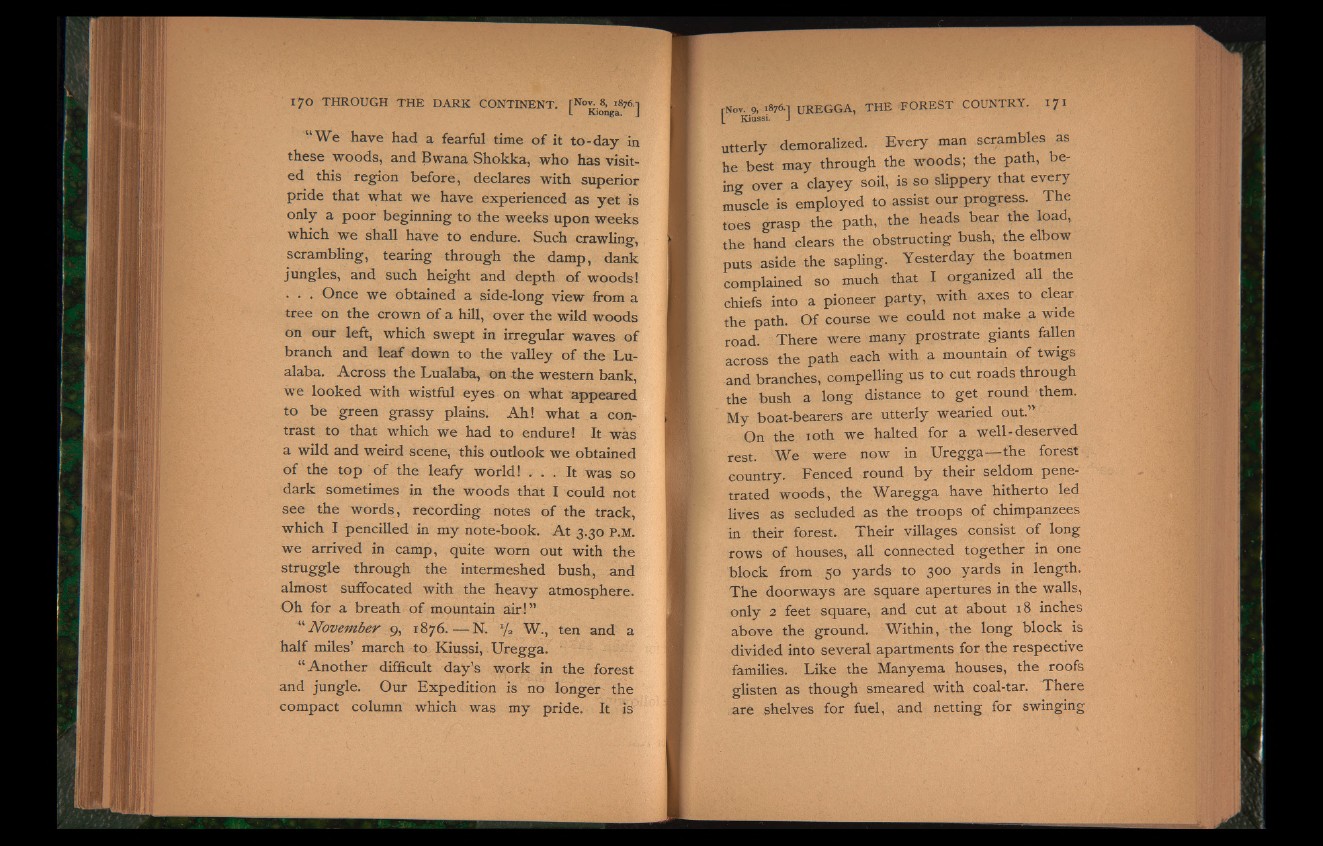
“We have had a fearful time of it to-day in
these woods, and Bwana Shokka, who hap visited
this region before, declares with superior
pride that what we have experienced as yet is
only a poor beginning to the weeks upon weeks
which we shall have to endure. Such crawling,
scrambling, tearing through the damp, dank
jungles, and such height and depth of woods!
. . . Once we obtained a side-long view from a
tree on the crown of a hill, over the wild woods
on our left, which swept in irregular waves of
branch and leaf down to the valley of the Lu-
alaba. Across the Lualaba, on the western bank,
we looked with wistful eyes on what appeared
to be green grassy plains. Ah! what a contrast
to that which we had to endure! It was
a wild and weird scene, this outlook we obtained
of the top of the leafy world! . . . It was so
dark sometimes in the woods that I could not
see the words, recording notes of the track,
which I pencilled in my note-book. At 3.30 P.M.
we arrived in camp, quite worn out with the
struggle through the intermeshed bush, and
almost suffocated with the heavy atmosphere.
Oh for a breath of mountain air!”
“ November 9, 1876. — N-. % W., ten and a
half miles’ march to Kiussi,. Uregga.
“ Another difficult day’s work in the forest
and jungle. Our Expedition is no longer the
compact column which was my pride. It is
rNov. 9,1876.-1 u r e g g a , t h e f o r e s t c o u n t r y . 1 7 1
|_ Kiussi. J
utterly demoralized. Every man scrambles as
he best may through the woods; the path, being
over a clayey soil, is so slippery that every
muscle is employed to assist our progress. The
toes grasp the path, the heads bear the load,
the hand clears the obstructing bush, the elbow
puts aside the sapling. Yesterday the boatmen
complained so much that I organized all the
chiefs into a pioneer party, with axes to clear
the path. Of course we could not make a wide
road. There were many prostrate giants fallen
across the path each with a mountain o f twigs
and branches, compelling us to cut roads through
the bush a long distance to get round them.
My boat-bearers are utterly wearied out.”
On the 10th we halted for a well-deserved
rest. We were now in Uregga— the forest
country. Fenced round by their seldom penetrated
woods, the Waregga have hitherto led
lives as secluded as the troops of chimpanzees
in their forest. Their villages consist of long
rows of houses, all connected together in one
block from 50 yards to 300 yards in length.
The doorways are square apertures in the walls,
only 2 feet square, and cut at about 18 inches
above the ground. Within, the long block is
divided into several apartments for the respective
families. Like the Manyema houses, the roofs
glisten as though smeared with coal-tar. There
are shelves for fuel, and netting for swinging